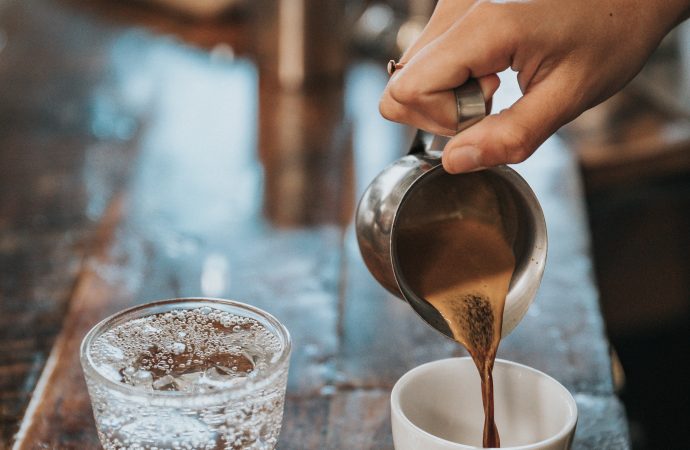Introduction: In the realm of hot beverages, there is a timeless rivalry that has captivated the taste buds and hearts of millions: the battle between coffee and tea. These beloved brews have fueled debates and ignited passions around the world. In this article, we delve into the ultimate face-off between coffee and tea, exploring their
Introduction:
In the realm of hot beverages, there is a timeless rivalry that has captivated the taste buds and hearts of millions: the battle between coffee and tea. These beloved brews have fueled debates and ignited passions around the world. In this article, we delve into the ultimate face-off between coffee and tea, exploring their flavors, health benefits, and cultural significance to determine which brew takes the crown.
The Bold Aroma and Flavor of Coffee:
Coffee, often described as a dark elixir, boasts a rich and invigorating aroma that can awaken the senses. Its robust flavor profile varies depending on the type of beans, the roast level, and the brewing method. From the smoky bitterness of a dark roast to the vibrant acidity of a light roast, coffee offers a diverse range of tastes that cater to different preferences.
Aside from its enticing flavor, coffee is known for its caffeine content, which provides a stimulating effect on the body and mind. This caffeine boost can enhance alertness, focus, and productivity, making it a go-to choice for many people’s morning rituals. Moreover, studies have suggested that moderate coffee consumption may be linked to a reduced risk of certain diseases, such as Parkinson’s disease, type 2 diabetes, and liver cirrhosis.
The Delicate Nuances of Tea:
Tea, on the other hand, offers a more nuanced and refined experience. Derived from the leaves of the Camellia sinensis plant, tea comes in various types, including green, black, oolong, and white, each with its own distinctive flavor profile. From the grassy and vegetal notes of green tea to the robust and malty flavors of black tea, tea’s complexity delights the palate.
Unlike coffee, tea contains less caffeine, providing a gentler and more calming effect. It is often enjoyed for its ability to promote relaxation and create a sense of tranquility. Tea is also renowned for its potential health benefits. Its abundance of antioxidants, such as catechins and flavonoids, may contribute to improved heart health, reduced inflammation, and enhanced cognitive function.
Cultural Significance:
Coffee and tea hold significant cultural value in different parts of the world. Coffeehouses have long been gathering places for intellectual discourse and social interaction, from the cafés of Europe to the bustling coffee stalls of the Middle East. In contrast, tea has deep roots in Asian cultures, where tea ceremonies and rituals symbolize harmony, hospitality, and respect.
The choice between coffee and tea often reflects cultural traditions and preferences. Coffee has become synonymous with bustling city life and productivity, while tea is associated with relaxation, meditation, and mindfulness. Both beverages hold a special place in various customs and traditions, connecting people through shared experiences.
The Verdict:
Choosing a winner in the battle between coffee and tea is no easy task, as it ultimately comes down to personal preference. While coffee offers a bold and invigorating kick-start to the day, tea provides a more serene and nuanced experience. The decision may also be influenced by factors such as desired taste, caffeine sensitivity, and health considerations.
Ultimately, the true winner in the coffee vs. tea face-off is the one that brings the most joy and satisfaction to each individual. Whether it’s the robust and aromatic allure of a perfectly brewed cup of coffee or the soothing and contemplative sips of a delicate tea, both beverages have their own unique charms that have stood the test of time.
In conclusion, the battle between coffee and tea continues to be waged in kitchens and cafés worldwide. As coffee and tea enthusiasts engage in friendly debates over their preferred brew, it becomes clear that there is no one-size-fits-all answer. So, embrace your personal taste preferences, savor the flavors, and appreciate the cultural significance behind these beloved beverages. After all, it’s the enjoyment and experience that truly matters in this ultimate face-off between coffee and tea.

















Leave a Comment
Your email address will not be published. Required fields are marked with *